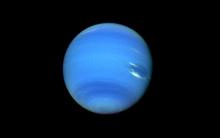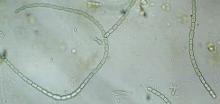News
-

Songbirds' epic migrations connected to a small cluster of genes
July 28, 2016
Scientists from the University of British Columbia have shown that there is a genetic basis to the migratory routes flown by songbirds, and have narrowed in on a relatively small cluster of genes that may govern the behaviour. “It’s amazing that the routes and timing of such complex… read more
-

Hummingbird vision wired to avoid high-speed collisions
July 18, 2016
Hummingbirds are among nature’s most agile fliers. They can travel faster than 50 kilometres per hour and stop on a dime to navigate through dense vegetation. Now researchers have discovered that the tiny birds process visual information differently from other animals, perhaps to handle the… read more
-

UBC researchers invent a synthetic ‘glue’ for blood clots
July 15, 2016
UBC Science graduate student Karen Chan and biochemical engineer Christian Kastrup have developed a synthetic version of fibrin, opening up new possibilities for shoring up blood clots and helping internal wounds heal. Kastrup and Chan have created a polymer – a large, star-shaped molecule… read more
-

Astronomers discover new distant dwarf planet beyond Neptune
July 11, 2016
An international team of astronomers including researchers from the University of British Columbia have discovered a new dwarf planet orbiting in the disk of small icy worlds beyond Neptune. The new object is about 700 km in diameter— roughly one-and-a-half times the size of Vancouver… read more
-

Researchers find better way to ‘herd’ electrons in solar fuel devices
June 20, 2016
Researchers at the University of British Columbia and the University of North Carolina at Chapel Hill have discovered a new way to optimize electron transfer in semi-conductors used in solar fuel solutions. The finding, published today in Nature Chemistry, could have a big impact on devices that… read more
-

Bright spots shine light on the future of coral reefs
June 15, 2016
Researchers have discovered a handful of ‘bright spots’ among the world’s embattled coral reefs, offering the promise of new approaches to conservation. In one of the largest global studies of its kind, researchers at James Cook University and UBC conducted over 6,000 reef… read more
-

Falling fish catches could mean malnutrition in the developing world
June 15, 2016
Fish catches won’t be able to meet the nutritional needs of the Earth’s population by mid-century, but a shift in management practices could save hundreds of millions of fish-dependent poor from malnutrition, according to a new analysis by researchers at Harvard, the University of… read more
-

Virus uses 'stolen' CRISPR to hack its host's immune system
June 14, 2016
A virus that infects major freshwater bacteria appears to use stolen bits of immune system DNA to highjack their hosts’ immune response. Microbiologists have discovered that the virus, Cyanophage N1, carries a DNA sequence—a CRISPR—that is generally used by bacteria to fight off… read more
-

Dr. Santa Ono to become UBC President and Vice Chancellor
June 13, 2016
A Vancouver-born biomedical researcher who is a pioneer in experimental medicine with an established track record as a senior leader at U.S. universities has become the 15th President and Vice Chancellor of the University of British Columbia, the university announced today at the Peter A. Allard… read more
-
UBC researcher wins Statistical Society of Canada Gold Medal
June 7, 2016
UBC researcher and alumnus Harry Joe is the 2016 recipient of the Gold Medal of the Statistical Society of Canada (SSC). The medal is awarded to a person who has made outstanding contributions to the field of statistics. Internationally renowned for his work on multivariate dependence modelling,… read more